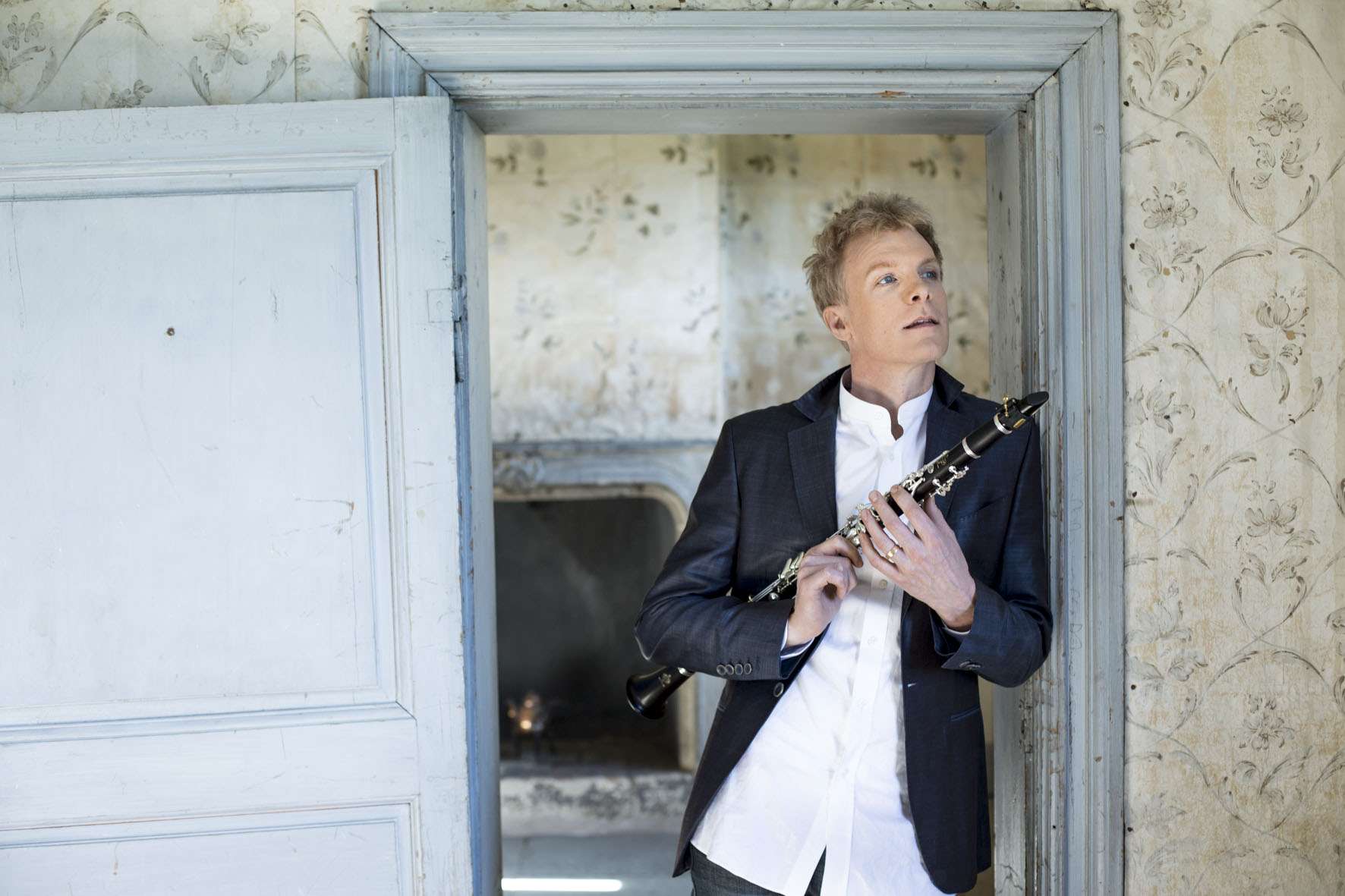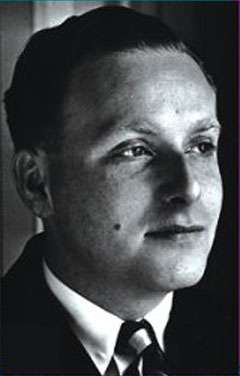|
Back
Music as Democracy New York
Isaac Stern Auditorium, Carnegie Hall
12/07/2013 -
George Friedrich Handel: Concerto Grosso in F Major, Opus 6, No. 2
Wolfgang Amadeus Mozart: Clarinet Concerto in A Major, K. 622 – Symphony Number 29 in A Major, K. 201
Irving Finde: Serious Song: A Lament for String Orchestra
Martin Fröst (Clarinet)
Orpheus Chamber Orchestra 
M. Fröst (©www.martinfrost.se)
Forty-two years ago, New York’s finer young musicians created an ensemble which put democracy at the center of their music. Looking back three centuries back (the age before Beethoven, when the “conductor” was the First Chair Violin), half a century (the original Soviet orchestras which felt leaders were anti-Socialist) and to the future (when musical talent was so great that music would come inevitably to everybody), they have done away with conductors, they democratically make their musical decisions and have become a kind of hagiographic icon in New York and abroad.
The reality of course is that this is chamber music writ large. But celebrated soloists long to play with Orpheus and some composers have written the most difficult music especially for this group. Their individual talents are so great that the ensemble results are almost always exceptional.
As a listener, I’m not as enamored of Orpheus as my peers, and certainly not of the full house yesterday which enthusiastically applauded everything played. But being of the Old School, I’ve always had the notion that certain music needed a single person to picture an aural vision, and through rehearsals, body language, interpretation, impulse and some vague “magic” that individual vision would communicate to the audience.
True enough, in the Baroque Age, those First Chair (or continuo keyboard) players were adequate, and impetuous music could come through optional ornaments and solo cadenzas. Thus, when Orpheus’ first piece, a Handel Concerto Grosso came on, the lustrous strings the ensemble, the rhythms, the counterpoint, all came together.
Outside of our string instruments probably with more volume than Handel’s (who didn’t need it anyhow, since no Carnegie Halls were built), the composer would have loved it.
The two Mozart works, though, had perhaps some restrictions. Martin Fröst, the Swedish clarinetist, had no problems with the Mozart Concerto, but he did break the rules. Mr. Fröst is not only one of the prime soloists in the world today, but he is also a conductor, and he couldn’t help moving about bringing up the associate voices at times to help him along.
Not that he needed it. The work sailed seamlessly, effortlessly from his hands. The work was written for one of Mozart’s favorite musicians, is absolutely perfect, and frankly, though once a clarinet player myself, I can find little difference in how various masters of the instrument play this. It always sounds wonderful, yet–a rather essential “yet”), certain conductors can give it the orchestral nuances which were unavailable to the Orpheus.
Mr. Fröst more than redeemed himself with the most brilliant encore, his own fantasia which started with the opening of Stravinsky’s Sacre, sailing through what I could only entitle Yiddish Svenska. I.e. klezmer style clarinet (with Orpheus rhythm). It was absolutely delicious.
The Mozart 29th Symphony was exactly how the audience loved it. The music was elegant, perfect (save for a short fluff in the horns), likeable, and classically uninteresting.
I don’t mean this as criticism of the Orpheus musicianship. But a week ago, Alan Gilbert conducted Mozart’s last three symphonies, and they were neither “elegant” nor “likeable.” They were viscerally exciting, vibrant, they were executed by the New York Phil but they had the stamp of Alan Gilbert.
The music was labelled “classical”, or romantic or baroque. The music was Mozart. With the Phil, the audience and this listener were alert, excited, expectant. With the Orpheus, the audience had the studied eyes of dead fish. The music was “nice music.”

I. Fine (© www.singers.com)
To nobody’s astonishment, this is the centenary of Irving Fine, who died of a heart ailment at the age of 43. He was a leading member of the Boston/Cambridge cabal, which included Leonard Bernstein, Arthur Berger, Aaron Copland and Lukas Foss. But, while respected by them all, never really broke out of academia (he taught at both Harvard and Brandeis). The others took their talents and broke their respective molds. Mr. Fine, from the little that I’ve heard about him , must have been an excellent teacher and theorist. His own music, from YouTube recordings and the music of last night, is worthy of respect rather than excitement.
The nine-minute piece played by the Orpheus last night was perhaps over-explained in the title: Serious Song: A Lament for String Orchestra. Written in 1955, it starts with the same meditative strain as Barber’s Adagio, written two decades before. But the simple start of the Barber work continues with a clear definitive line to the inevitable shamelessly emotional climax. Mr. Fine went another route, taking the string orchestra through some strongly contrapuntal paces, stopping and starting, yet with that same mournful tone.
It was produced by a craftsman who had the most sincere inspiration. But that craftsmanship triumphed over the feeling. Still, this was grist for the Orpheus Orchestra, whose strings played the complex line with all the clarity it deserved.
(One acquaintance in the audience suggested that a record company do a double bill of this Serious Song with Symphony on a French Mountain Air, using the title “Fine and D’Indy”, but that third-rate jape hardly belongs in a serious music review.)
**********************************************
CODA: The newest film by the Coen Brothers, Inside Llewyn Davis is, like all other Coen Brothers movies, inexplicably wonderful. It is gracious, ugly, pessimistic, beautiful to watch, horrifying to experience, is surrealistic at times, all too natural at other times, and if it weren’t created by the Coen Brothers, would probably be deemed anti-Semitic.
But nobody who loves (or even likes) movies can ever ignore it. While the story is of a mediocre folk singer in the Greenwich Village of the 1960’s, with music to match, towards the center is about four minutes of Mahler. Specifically the final movement of the Fourth Symphony.
This is not simply incidental music, and I dare not explain the scene, save that I will never listen to this work again without thinking of the accompanying visual. The conductor, by the way, is Daniel Harding, with the Mahler Chamber Orchestra.
It is a revelation in film, and in music.
Harry Rolnick
|